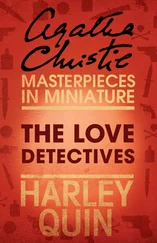“The most important entitlement,” I think you wrote, “remains the right to speak from a position.”
The acid came from San Francisco and it was nice in a California kind of way. Mustard sunlight reflected like a digital display over splashing waves; tall seagrass dancing in the dunes. Is poverty the absence of association? LSD unlocks the freeze-frame mechanism behind our eyes, lets us see that matter’s always moving. Or so they say. But I was conscious while the grass and clouds were pleasurably roiling that they’d only be roiling in this way for seven hours. Unlike all the famous California acidheads, I was disappointed, underwhelmed, because drug-induced hallucinations are so visual and temporal.
What’re pictures compared to living’s endless tunnels, poverty grief & sadness? To experience intensity is to not know how things will end. This morning a Vietnam vet living with a hoard of dirty kids in a shack next to the Eagle Rock dry cleaners offered me 2000 dollars on the spot for my 1000 dollar car. Why? Because it (a 1967 Rambler) reminded him of his dead mother, the car she used to drive. We grasp at symbols, talismans, triggers of association to what’s forever gone.
(For years I tried to write but the compromises of my life made it impossible to inhabit a position. And “who” “am” “I”? Embracing you & failure’s changed all that ’cause now I know I’m no one. And there’s a lot to say…)
I want to write to you about schizophrenia—(“The schizophrenic believes that he is no-one,” R.D. Laing)—even though I haven’t got a wooden leg to stand on in relation to this subject, having never studied it or experienced it firsthand. But I’m using you to create a certain schizophrenic atmosphere, OR, love is schizophrenia, OR, I felt a schizophrenic trigger in our confluence of interests—who’s crazier than who? Schizophrenia’s a state that I’ve been drawn to like a faghag since age 16. “Why are all the people I love crazy?” went a punk rock song by Ann Rower. For years I was the best friend, confidante, of schizophrenics. I lived through them, they talked to me. In New Zealand and New York, Ruffo, Brian, Erje and Michelle, Liza, Debbe, Dan were conduits for getting closer. But since these friendships always end with disappearances, guns and thefts and threats, by the time we met I’d given up.
When I asked you if you’d been to school you acted like I’d asked you if you still liked fucking pigs. “Of course I’ve been to school.” After all, your current job depends on it. But I could tell from all the footnotes in your writing that you hadn’t. You like books too much and think they are your friends. One book leads you to the next like serial monogamy. Dear Dick, I’ve never been to school but every time I go into a library I get a rush like sex or acid for the first few minutes when you’re getting off. My brain gets creamy with associative thought. Here are some notes I made about schizophrenia:
1. Sylvano Arieti writes in The Interpretation of Schizophrenia that schizophrenics operate within the realm of “paleologic”: a thought-system that insists against all rationality that “A” can be both “A” and “not-A” simultaneously. If LSD reveals movement, schizophrenia reveals content, i.e., patterns of association. Schizophrenics reach past language’s “signifying chain,” (Lacan) into the realm of pure coincidence. Time spreads out in all directions. To experience time this way is to be permanently stoned on a drug that combines the visual effects of LSD with heroin’s omnipotence, lucidity. Like in a Borges world, where one moment can unfold into a universe. In 1974 Brion Gysin and William Burroughs recorded their experiments in time-travel via an awareness of coincidence in The Third Mind . It’s a self-help book. By following their methods (e.g., “Divide a notebook into three columns. Record at any given moment what you’re doing, what you’re thinking, what you’re reading…”) anyone can do this, i.e., can leave them “selves” and enter fractured time.
2. Ruffo was a 42-year-old man waiting to receive a full-frontal lobotomy in Wellington, New Zealand. He was an unmistakable sight in Wellington’s limited cast of “characters”—big and bear-like, tufts of straight black hair, bad teeth, broad smile, an energy and openness behind brown eyes that wasn’t English, wasn’t “European.” No matter what the season Ruffo wore a brown tweed overcoat wrapped around him like a cassock over sharkskin pants. Diagnosed incurable by New Zealand’s Mental Health, Ruffo was the most civil kind of “schizophrenic.” He never raved; in fact, he never spoke without considering the impact of his words with exquisite care. While privately he may have been delusional, Ruffo wasn’t bent on delivering any particular message. He’d discovered no conspiracies, and if voices spoke to him from radios, TVs or trees, he never translated them. His friends were his constituents, but unlike other politicians Ruffo was supremely patient. If plans were being made for him, perhaps they were for his own good. The Social Welfare agency that sent him checks hoped that once relieved of half a brain, Ruffo would become employable and self-supporting. He had no bitterness about this.
Southerly winds and rain pelted Wellington for six months of the year. Winters were gargantuan and mythic. Some years guide-ropes were installed downtown so that the city’s lighter residents would not be swept away: thin people in oilskin parkas floating over cars on Taranaki Street, drifting like balloons from the city to the harbor, clear across the Cook Strait to the South Island above the Picton Perry. Every year or so an article by a distinguished cultural celebrity (a writer or a broadcaster who’d travelled “overseas”) would appear in the New Zealand Listener likening Wellington to London or Manhattan. The entire city was delusional.
Sometimes after the floods a fine sparkling day would crack out of nowhere like the 8th Day of Creation, and these were days Ruffo would emerge in his overcoat from his bed-sit on Ohaka Terrace like an animal from its lair. I always felt better after running into him. Unlike most people in this self-consciously provincial burg, Ruffo was intelligent and curious. When he looked, he really saw you. His was a civilizing presence, transforming Wellington into Joyce’s Dublin.
If Ruffo trusted you, he’d invite you to his room, a bedsit carved out downstairs of a woodframe house that the landlord must’ve abandoned years ago to Social Welfare. You reach it walking down a brambly rutted concrete path. In fact Ruffo was a gifted artist. Hardly anyone in New Zealand at that time painted without institutional sanction, three years of art school, then a gallery, but Ruffo did: he painted silkscreens, stagesets, cartoon-posters for his friends with theater groups and bands.
Back in Wellington years later, I learned that Ruffo had been blessed eight years ago with the lobotomy and he was still in town. In fact, he had a show up at the Willis Street Community Center Gallery. I used the money that I’d made from talking at the university about the semi-names I’d worked with in New York to buy my favorite. In it, an ’80s-style Babbitt in a nice gray suit grins into a receiver at the red phonebox on the corner of Aro Street and Ohaka Terrace. The mouthpiece is a human ear. The street is a cacophony of traffic but there’s still a faint mangle of bush peeping out through all the blobby colored cars. Yellow clouds stretch out across a blue-pink mackerel sky. In Ruffo’s postmodern Wellington, One Dimensional Man still meets Katherine Mansfield.
The privilege of visiting Ruffo was always mixed, a little bit, with sadness. His basement room was dark and strewn with garbage. Digging through newspapers and dirty clothes to make a pot of tea, Ruffo never put an optimistic cast on things. He was a schizophrenic realist. He never had false hopes about an art career. If he was feeling really bad he’d disappear, not be at home, but he was never mean. Visits proceeded according to his rules, along a Continental model. He didn’t talk about himself, he didn’t pry into your life or problems. Visiting him was like travelling in another country. I didn’t mind this ’cause I wanted him to teach me how to be. I loved him. I was 16 and a foreigner.
Читать дальше
Конец ознакомительного отрывка
Купить книгу












